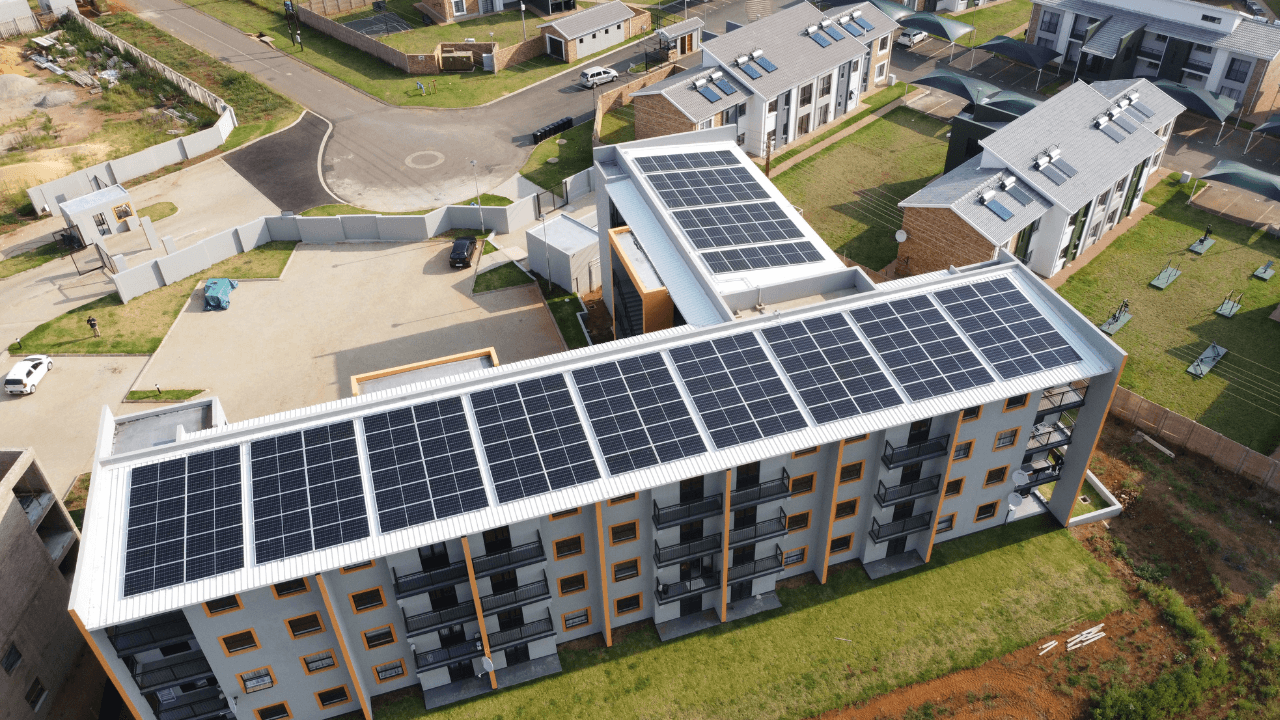Why solar and battery backup solutions are still a smart investment for community schemes
South Africa’s energy landscape is evolving. With improvements in electricity supply, many sectional title/community schemes and homeowner’s associations may be questioning whether investing in solar and battery backup solutions is still a smart investment. While load shedding may be less frequent for now, the financial and strategic benefits of renewable energy remain compelling – especially with inevitable electricity tariff increases.
Maximising cost savings with solar energy within your complex
Even without regular power outages, solar energy offers significant cost-saving opportunities for community schemes. Relying on Eskom’s grid remains costly, and tariffs are expected to continue rising. By generating electricity from the sun, complexes, flats, estates and businesses can dramatically cut down on expenses.
- Reduced electricity bills: Solar and battery storage energy can lower electricity costs by up to 30%, especially for schemes that consume power primarily during daylight hours when solar panels are at peak efficiency.
- Long-term financial relief: A well-planned solar installation provides consistent savings over time. With a Power Purchase Agreement (PPA), community schemes can avoid upfront costs while benefiting from ongoing maintenance and monitoring, paying only for the energy they use at a lower rate than Eskom.
- Battery backup for peak-hour savings: While batteries were previously seen as essential only for load shedding, they now serve an equally important role in cost management. By storing excess solar energy, schemes can reduce their reliance on the grid during peak demand times, when electricity is most expensive.
Demand management: controlling energy costs
Community schemes can leverage solar and battery storage solutions to optimise energy use and minimise demand charges. These solutions help in two key ways:
- Time-of-use arbitrage: By storing electricity during off-peak hours when tariffs are lower and using it during peak hours, schemes can significantly reduce energy expenses.
- Demand shaving: Battery systems can discharge stored power when energy demand spikes, preventing high peak charges and stabilising overall electricity costs.
Flexibility and future-proofing energy needs
Investing in solar and battery solutions today ensures long-term energy security and adaptability for the future.
- Scalability: Solar and battery storage systems are modular, allowing sectional title schemes to expand capacity as energy needs grow.
- Energy independence: South Africa is moving toward cleaner energy sources, and investing in renewable energy now positions community schemes to be less vulnerable to grid disruptions.
- Preparing for future energy demands: With the rise of electric vehicles (EVs) and other high-energy-consuming technologies, a solar and battery backup system ensures that schemes remain prepared for increasing energy requirements.
Enhancing property value with green credentials
Sustainability is also an increasingly important factor for property buyers. Community schemes that adopt solar energy not only save money but also enhance their market appeal. Demonstrating a commitment to renewable energy and reducing carbon footprints can attract environmentally conscious residents and investors.
The bottom line
Even in the absence of regular load shedding, the financial and strategic advantages of solar and battery backup solutions make them a wise investment for community schemes across South Africa. Lower electricity bills, greater energy control, long-term cost stability, and enhanced property value all contribute to the long-term viability of renewable energy solutions.
If your community scheme is considering the transition to solar and battery storage, now is the time to act. Contact us today to explore tailored solutions that will help you save money and contribute to a greener, more sustainable future.




